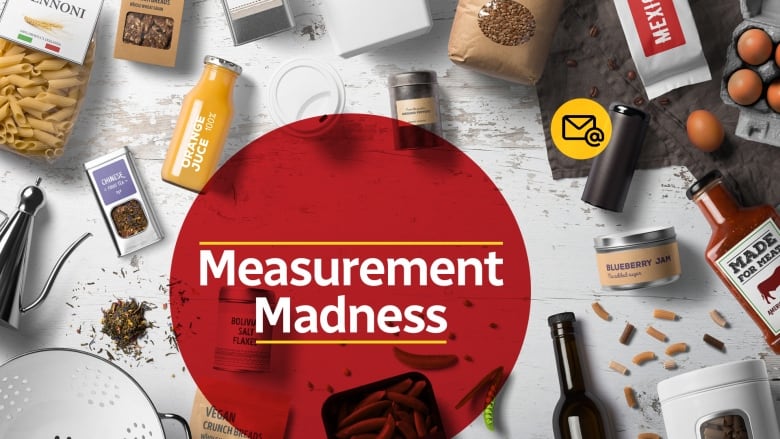How not to treat your cold; Your brain on social media: CBC’s Marketplace cheat sheet
Miss something this week? Don’t panic. CBC’s Marketplace rounds up the consumer and health news you need.
Want this in your inbox? Get the Marketplace newsletter every Friday.
Cold and flu season is here — but doctors say antibiotics won’t help you get better faster
As the season for coughs and colds returns, medical experts have a reminder: antibiotics aren’t a go-to treatment for common viral respiratory infections.
“I think that a lot of people are in the habit of still seeking antibiotics if they’re finding that their illness is prolonged or more severe, just in case,” said Dr. Lynora Saxinger, an infectious diseases specialist at the University of Alberta Hospital in Edmonton.
Overprescribing — including at a patient’s request — and misuse of antibiotics is fuelling antibiotic resistance, a global health threat giving rise to superbugs that can’t be treated by first-line antibiotics.
Saxinger says patients who are prescribed an antibiotic for an illness the drugs don’t treat can be given a false perception of their effectiveness.
“They get a prescription, it’s for a virus, but they start to get better shortly after because they’ve just peaked in their illness while this whole process was going on,” she told Dr. Brian Goldman, host of The Dose podcast.
“So there’s also a learned behaviour where people associate getting better with having had an antibiotic prescription.” Read more
Social media gets teens hooked while feeding aggression and impulsivity, and researchers think they know why

Kids who spend hours on their phones scrolling through social media are showing more aggression, depression and anxiety, say Canadian researchers.
Emma Duerden holds the Canada Research Chair in neuroscience and learning disorders at Western University, where she uses brain imaging to study the impact of social media use on children’s brains.
She and others found that screen time has fallen just slightly from the record 13 hours a day some Canadian parents reported for six- to 12-year-olds in the early months of the COVID-19 pandemic.
“We’re seeing lots of these effects. Children are reporting high levels of depression and anxiety or aggression. It really is a thing.”
When parents said their children spend more time on screens and the grownups are stressed, then anxiety and depression scores in the kids also increase.
“Absolutely, I think this is a public health issue,” Duerden said.
Just as serotonin dips when we’re hangry — hungry and angry at the same time — screen time can also strongly influence the brain’s reward system that is key to decision-making.
“It could be that there’s an actual depletion in serotonin,” Duerden explained. “There’s this imbalance and that’s how it could be mediating aggression in children.” Read more
Drugs like Ozempic are popular for weight loss. That’s because there’s been little other help: obesity doctors

Despite widely publicized reports of rare but severe side effects, obesity doctors say Ozempic and drugs like it have the potential to improve medical help for a chronic illness that patients have been forced for too long to try to cure on their own.
“There are still some aspects of our health-care community that say, ‘this is not important, weight loss is not important; it’s just cosmetic and you’re really not improving the health of these people,'” said Dr. Daniel Drucker, a physician-scientist whose research helped pave the way for Ozempic, one of several brand names for a drug known as semaglutide. “But now I think that argument will be laid to rest.”
Ozempic and other drugs in its class are known as glucagon-like peptides, or GLPs. Because GLPs act to stimulate insulin secretion, the first was approved for use as a diabetes drug in 2005, said Drucker, who is a senior scientist at the Lunenfeld-Tanenbaum Research Institute at Mount Sinai Hospital in Toronto.
But it was actually back in the late 1990s that Drucker’s lab, as well as that of Dr. Steve Bloom in the U.K., began to publish what they’d observed in clinical trials — that patients treated with GLP medicines for their diabetes were also losing weight.
Now new data shows that semaglutide also reduces rates of heart attacks, strokes and death in people with pre-existing cardiovascular conditions. Drucker told White Coat, Black Art host Dr. Brian Goldman he believes this will “change the conversation around the importance of treating people with obesity.” Read more
What else is going on?
Here’s the 2022 list of the 10 most stolen vehicles in Ontario
Is your car one of them?
Workers at 17 No Frills stores in Ontario could strike Monday
The stores range from Aylmer to Renfrew, with most locations clustered in or near Toronto.
Housing market has gone into ‘hibernation,’ CREA says, as sales and listings decline
It’s a buyers market in B.C. and Ontario, says one economist.
Marketplace needs your help!

When it comes to your grocery items, have you ever found that you’re not getting the amount on the label? Does the 500 grams you were promised come out to less? Marketplace is on the case and wants to hear what grocery items may be falling short. Get in touch at [email protected]

Is new technology in your car giving you road rage? Is the touchscreen keeping your eyes off the road? We want to hear how new technology in cars is impacting your driving. Reach us at [email protected]

Are you looking for the latest in business news? You’ll want to subscribe to this newsletter, too.
Mind Your Business is your weekly look at what’s happening in the worlds of economics, business and finance. Subscribe now.
Catch up on past episodes of Marketplace on CBC Gem.




